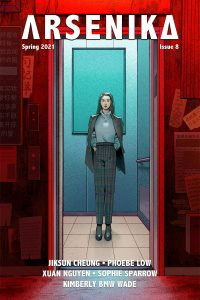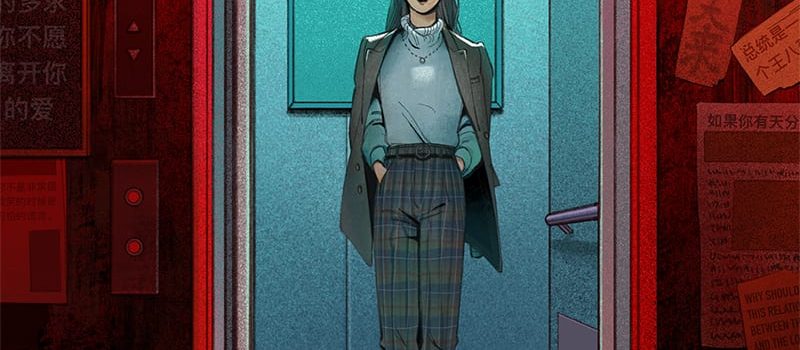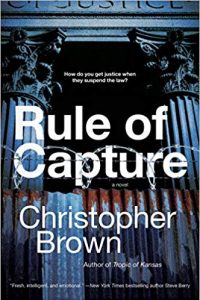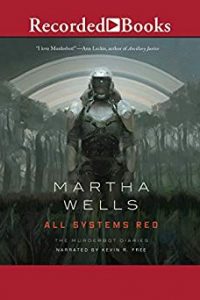Karen Burnham Reviews Tor.com, Strange Horizons, Future SF, Fiyah, Diabolical Plots, and Arsenika
 Tor.com 5/5/21
Tor.com 5/5/21
Strange Horizons 5/21
Future SF Digest #10
Fiyah Spring ’21
Diabolical Plots 3/1/21, 3/15/21, 4/16/21
Arsenika Spring ’21
Of the stories I spotted in Tor.com this month, “The Lay of Lilyfinger” by G.V. Anderson was by far my favorite. It draws out a complex world with many different factions and races. Saaba-niszak is a long-lived being from far away; she has taken in Pom as an apprentice bard despite his hard start in life as the mixed-race result of rape. They travel together to win a commission to sing the Lay of Lilyfinger at the staining ceremony of a rich woman’s daughter, but very little goes smoothly: a flute is broken, the daughter wants to learn the harp, Saaba-niszak’s way of suppressing parts of herself start to fail, and there are arguments among the musicians about what the “right” way to play the lay is. In the face of all this and a looming deadline it will take basic decency and kindness to see everyone through. Sometimes help comes from unexpected quarters.
In Strange Horizons in May I loved “Si Shou” by E.A. Xiong. In this story a pianist who is famed throughout the solar system is looking to have a radical transformation via somatology performed. She chooses a particular Artisan to do the work, and we get both of their perspectives on the challenging commission. The Artisan has to bring together a team to tackle all the different aspects of the project, and the pianist works through what it might mean if the procedure ruins her musical talent. The way she thinks about her music, paired with a journey towards post-humanity, is wonderfully done.
My favorite story in the tenth issue of Future SF Digest is the concluding entry, “The Final Test” by Ti Sha (translated by Judith Huang). In it an AI has to pass a test in order to become something like a full citizen of its society. It is put in a historical situation, with mostly only historical resources, where a Naked Ape (human) challenges the AI to prove it has free will. The AI mounts several reasonable arguments, but its interlocutor is frankly illogical. The AI will have to do something considerably more creative in order to survive and pass. The story is excellent, and the translator notes at the end are almost as interesting. We also get a story from Liu Cixin that reads like a science fiction fable, “The Two Festivals that Cannot Coexist” (translated by Nathan Faries). An alien disguised as a lowly technician greets Sergei Korolev on April 12, 1961 – the date now celebrated by space enthusiasts worldwide as “Yuri’s Night” when humans first achieved orbit. Korolev was one of the architects of the Soviet space race, all the way from Sputnik in 1957 to his untimely death in 1966. The alien has him toast to a new, truly consequential festival, a “Day of Birth” for humanity… maybe. We next see the alien in 2050 when, appearing as a janitor, he leads the team that has just perfected a human-computer interface in a toast. What will their judgement of that accomplishment be? I also quite enjoyed “The Office Drone” by Nic Lipitz. This story gets a lot of mileage out of the conflation of two types of office drones – the human kind that pushes paper and the autonomous flying robots that make deliveries. One of these robotic drones, engaging in some unpredictable machine learning, decides that it really wants to be the other kind of drone and starts making PowerPoint slides in its spare time. Mayhem ensues as it starts modifying itself to better fulfill its new goals, making innocently snarky conversation with the humans all the while.
The 18th issue of Fiyah leads with another story that feels like it could be a fable, but fleshed out with much more depth. “The White Road; or How a Crow Carried Death over a River” by Marika Bailey starts with an archetype, a young crow looking for an adventure that will grant her a true name. Her mother pushes her out of the nest to get her started, and she quickly finds herself deep, deep under the ocean. She finds the bones of those who died, nameless, in the mid-Atlantic passage (the trade route carrying enslaved Africans). After conversing with the bones the young crow lifts them up to become constellations in the sky. But when she returns home she isn’t done, and she enlists the queen of the Crows and Death itself to follow up with those who perpetrated these atrocities – earning her name in the process. Crows are, of course, brilliant and feature in many stories across cultures, and I appreciate how Bailey extends this narrative beyond the simple Just So story aspect to something much deeper and more satisfying. The next story, “Fatal Conditions” by Chris Campbell, has some of that same spirit. A woman (first-person narrator, so we don’t get her name) has magic, and despite the warnings of her mother she uses that magic to deplete herself and heal others. After some particularly traumatic healings are required by her family, she knows she’s near death. She goes to confront Edekon, an undead being. Like the crow, the narrator has more depths to her than a simple summary can attest. Getting so much of her family history and interactions also helps ground this story, making it feel firmly solid amongst its fantastic elements. An impressive effort by a debut author.
I was able to check in on Diabolical Plots this month, and they’re having fun as always. “Boom and Bust” by David F. Shultz is an over-the-top take on late-stage capitalism where it has devolved into literal warfare between corporate teams, and everyone’s got real-time information streaming to their devices on the bounty values assigned to different targets. One team is flying high, then gets laid low and turns to a unique strategy to save themselves. Art might not be dead in this world, but capitalism gets its hooks into it no matter what. “For Lack of a Bed” by John Wiswell gives us Noèmi, who is suffering from chronic pain. Her friend Tariq brings her a sofa – it’s free but someone died on it. She’s searching for any possible respite, and when she sleeps on this couch she feels great afterwards. Suspiciously so – Lili, her succubus boss at the pet store, recognizes that the sofa is likely a devolved succubus, stuck in one shape and slowly absorbing its victims. While all agree that the couch must be destroyed, Noèmi wonders if there’s some way to capture anything at all of the comfort it offered, something no therapy or pain meds had even come close to providing. The resolution is nicely satisfying.
On a more serious note, “The Void and the Voice” by Jeff Soeshe features a father/son team on a small-scale mining ship that’s been hit by an asteroid and badly damaged. The father is integrated into the ship’s computer, so he jumps between providing status updates and emotional memories, which is understandably upsetting to the son. They’ve been somewhat estranged, even if still working together, since his mother died. The son works out a classic science fiction jury-rigged solution, but has his own emotional arc to follow. The ending definitely felt earned.
The eighth issue of Arsenika will sadly be its last. It closes with two stories, three poems, and a farewell editorial from S. Qiouyi Lu. “What the Humans Call Heartache” by Jiksun Cheung is a moving story about an AI robot servant who creates opportunities to escape from her household of employment and get illicit power to her offspring. It’s a very human drama with an inhuman heroine. “On the Getting of Husbands and the Spawning of Children” by Sophie Sparrow gives us a woman living alone in the woods. She is bound to the forest, as it gives her eternal life and beauty but demands that she lure in men, kill them after sex, and hand over the babies that she delivers afterwards. She meets a perceptive older woman at the market one day, and starts to see a pathway out of her accursed state.
Recommended Stories
“The Lay of Lilyfinger”, G.V. Anderson (Tor.com 5/5/21)
“The White Road; or How a Crow Carried Death over a River”, Marika Bailey (Fiyah #18)
“The Final Test”, Ti Sha (Future SF Digest #10)
“Si Shou”, E.A. Xiong (Strange Horizons 5/3/21)
Karen Burnham is an electromagnetics engineer by way of vocation, and a book reviewer/critic by way of avocation. She has worked on NASA projects including the Dream Chaser spacecraft and currently works in the automotive industry in Michigan. She has reviewed for venues such as Locus Magazine, NYRSF, Strange Horizons, SFSignal.com, and Cascadia Subduction Zone. She has produced podcasts for Locusmag.com and SFSignal.com, especially SF Crossing the Gulf with Karen Lord. Her book on Greg Egan came out from University of Illinois Press in 2014, and she has twice been nominated in the Best Non-Fiction category of the British SF Awards.
This review and more like it in the July 2021 issue of Locus.
 While you are here, please take a moment to support Locus with a one-time or recurring donation. We rely on reader donations to keep the magazine and site going, and would like to keep the site paywall free, but WE NEED YOUR FINANCIAL SUPPORT to continue quality coverage of the science fiction and fantasy field.
While you are here, please take a moment to support Locus with a one-time or recurring donation. We rely on reader donations to keep the magazine and site going, and would like to keep the site paywall free, but WE NEED YOUR FINANCIAL SUPPORT to continue quality coverage of the science fiction and fantasy field.
©Locus Magazine. Copyrighted material may not be republished without permission of LSFF.







